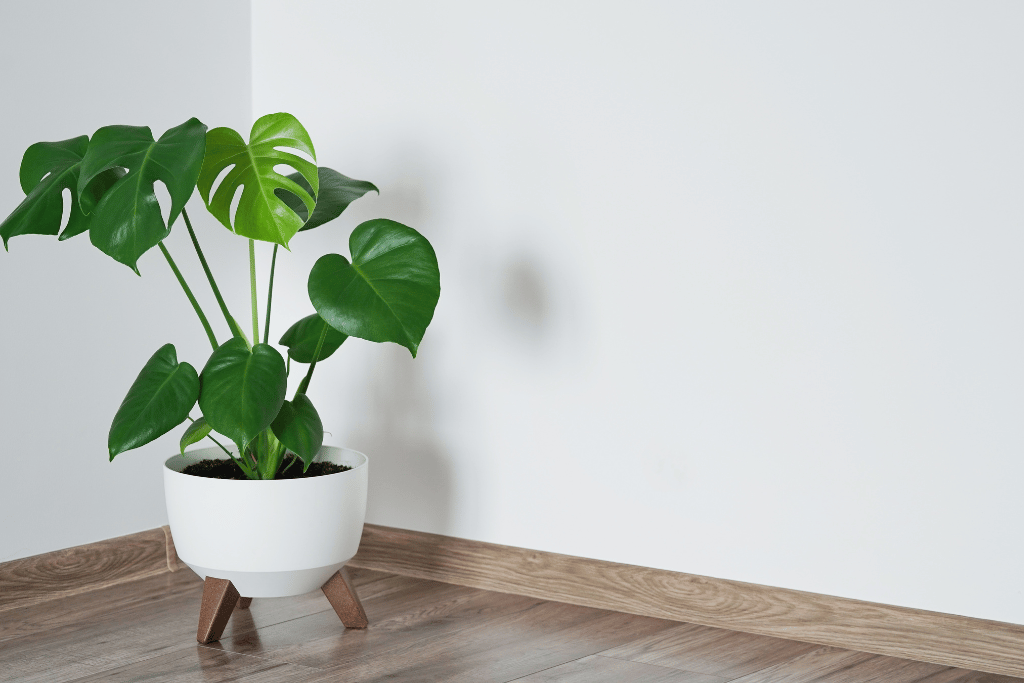
Monstera is a trendy house plant these days, and for a good reason. With its large, tropical foliage and stunning varieties, Monstera adds a bit of exotic flair to a room and will be a sure favorite in any plant collection.
Native to the tropical rainforests of Central and South America, Monstera plants require specific care so they can show you their true beauty. From humidifiers to watering schedules and dealing with those pesky aerial roots, taking care of this species can be intimidating to some. However, the best way to succeed with your Monstera plant is to build a good foundation by choosing the right soil! Proper soil can help avoid issues like pests, overwatering, and root rot, making taking care of your plant just that little bit easier.
Best Soil Mix For Monstera
Just like picking out the proper-sized pot for your plant is important, taking the time to understand what soil is best for your Monstera will set you up for success. In general, Monstera plants want well-draining soil that includes additives like bark, perlite, and organic matter to improve nutrient availability and soil structure.
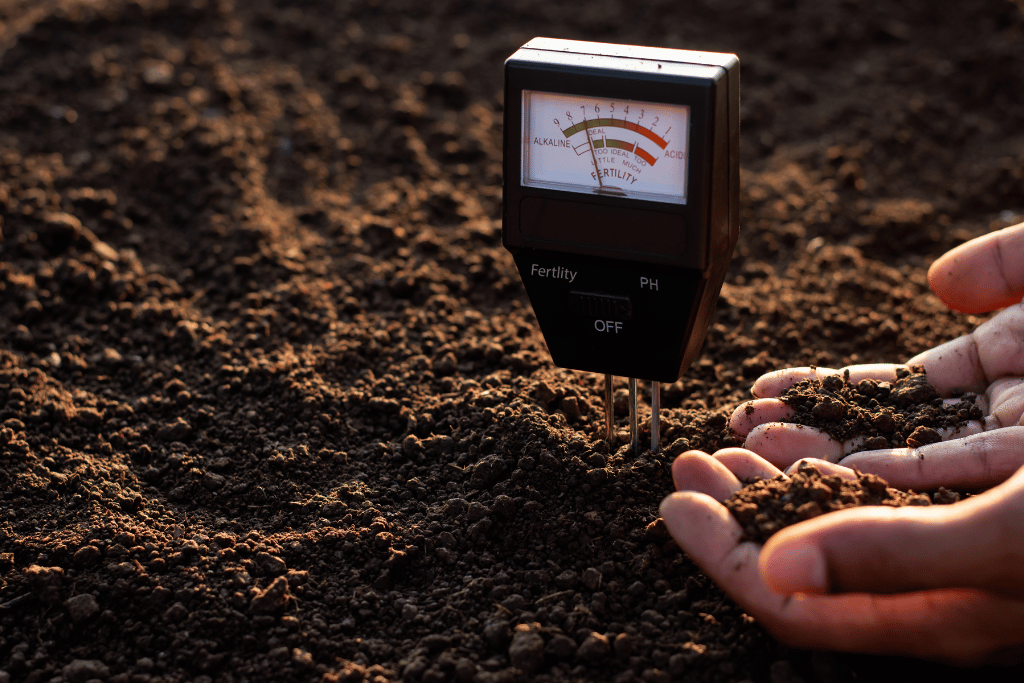
Best pH for Monstera Soil
First, let’s talk about pH. What is it and why is it important to your plant? The pH of the soil, how acidic or basic it is, can impact many things, the most important being how easy it is for your plant’s roots to get the nutrients it needs from the soil. If the pH of the soil is too high or too low, this can lead to serious nutrient deficiencies in your plant.
Like many other house plants, Monsteras prefer slightly acidic soil, with a pH between 5.5 and 7.0. This should be easy to achieve if you have a high-quality soil mix (more on that later), but if you happen to test the soil and need to make adjustments, you can do that too!
Adding organic matter, like compost or coffee grounds, will help your soil become more acidic for your plant. On the other hand, if you suspect your soil is too acidic for your Monstera, try adding lime, wood ashes, or even baking soda dissolved in water. Just be careful not to add too much and swing the scale the other way!
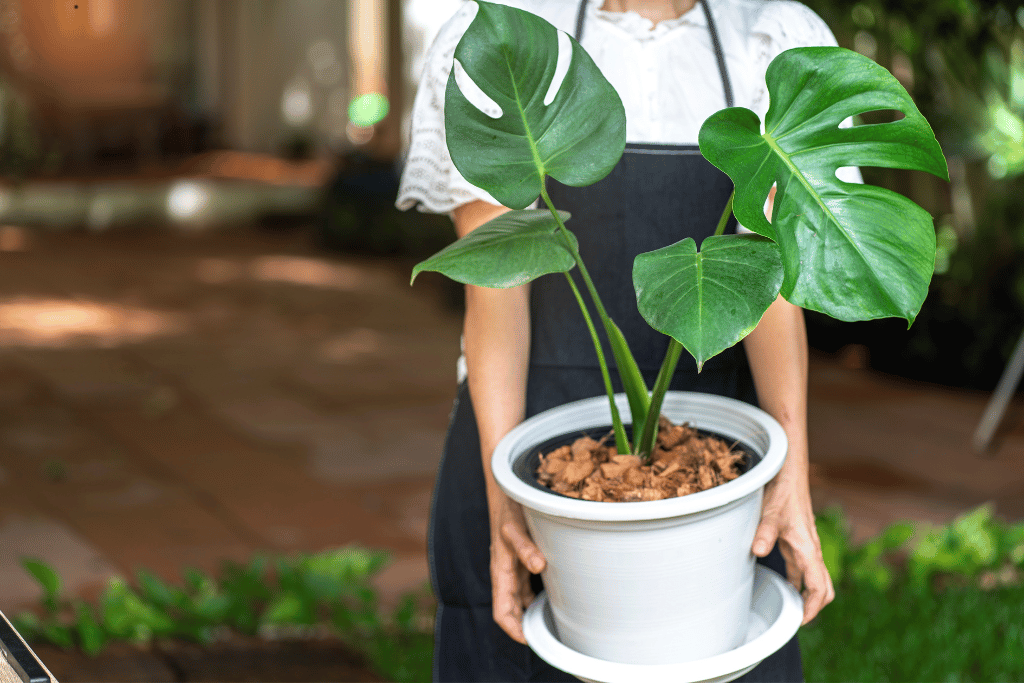
Best Store-bought Soil For Monstera
For Monstera growers that want an easy option, store-bought Monstera soil mixes are a great choice. If you can’t find a pre-made mix labeled specifically for Monstera use, you can check for an Orchid mix as well. The important thing is to look for the specific ingredients used, your mix should include high-quality potting soil, as well as additives like sand, perlite or vermiculite, bark or coconut coir, and compost to make a rich, well-structured soil.
Be careful about buying compost-heavy soils for your plant. These soils are tempting as they provide plenty of nutrients, but for a species like Monstera can cause more trouble than they are worth. This is because compost is a dense material that holds lots of water. This will run the risk of drowning your plants’ roots or causing issues like root rot and molding. Instead, use compost to improve nutrient availability and pH of the soil by adding it regularly to the top of your potted plant.
Read more: how to fix root rot monstera.
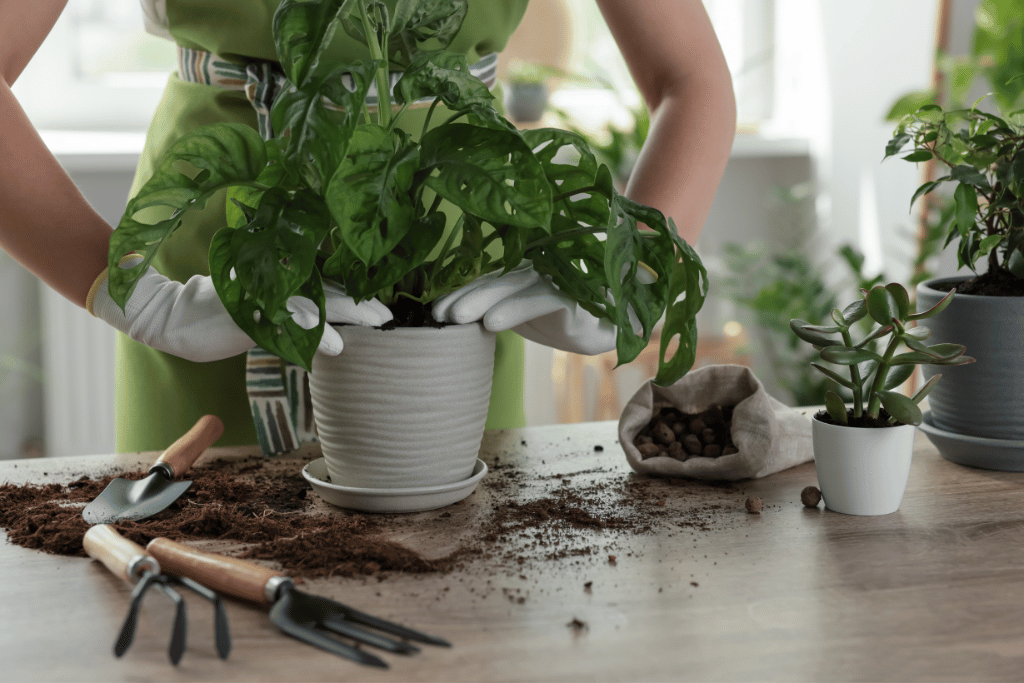
Making Your Own Monstera Soil Mix
For those who are more inclined to DIY, or who have a lot of plants to pot, you can save money by customizing your own soil mix and making it in bulk at home! Monstera potting mix can include a variety of ingredients, that fall into two main categories, the base (a quality potting soil) and the amendments. Soil amendments add structure, which can prevent compaction that will harm roots, as well as nutrients and water-retention properties to the soil.
A list of possible amendments suitable for Monstera are:
- Perlite
- Vermiculite
- Sand
- Compost
- Peat moss
- Coco peat
- Coco chips
- Shredded, pine, or orchid bark
- Pumice
- Horticultural charcoal
Pick and choose which amendments are right for you based on cost and availability. In addition to your potting soil, you should add at least one additive of rough organic matter (think bark or coco chips) and a moisture retainer (like perlite, vermiculite, or peat moss). To keep it simple, aim to have each of these components in a 1:1:1 ratio. Optionally, you can add a lesser amount of compost, sand, and/or horticultural charcoal into the mix to further improve nutrients and the aeration of the soil.
Once you know what ingredients you want to include in your soil mix, you can add them in the required amounts to a large container with an airtight lid. This allows you to save excess soil mix for use later on. Mix up your components well and then get to work potting (or repotting) your Monstera plants!
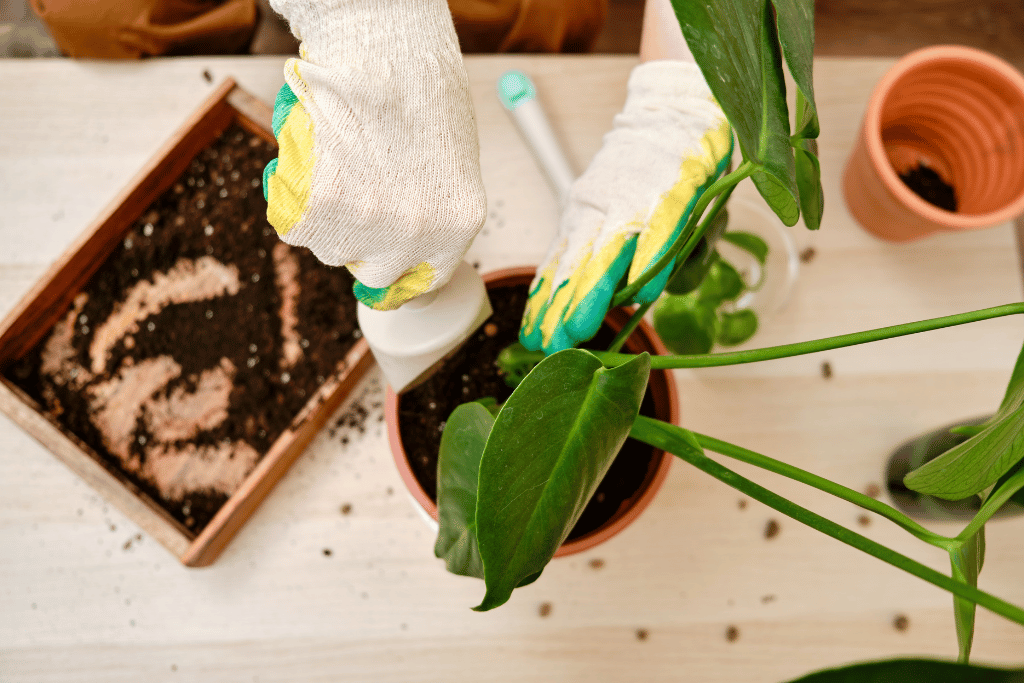
Can I Use Cactus Soil For Monstera?
Cactus and succulent soils are tempting to use for Monstera plants, as these species are also sensitive to overwatering and also require well-draining conditions. However, Monstera plants are not likely to thrive in cactus soil alone. This is because these mixes are often high in sand levels and do not have the required soil structure to properly support a Monstera plant (which can grow quite large!). In addition to not getting the support it needs, your plant will also likely suffer nutrient deficiencies due to a lack of organic material. Instead, consider using cactus soil as an additive to a custom soil blend for your Monstera, to take advantage of the well-draining properties that these plants love so much.
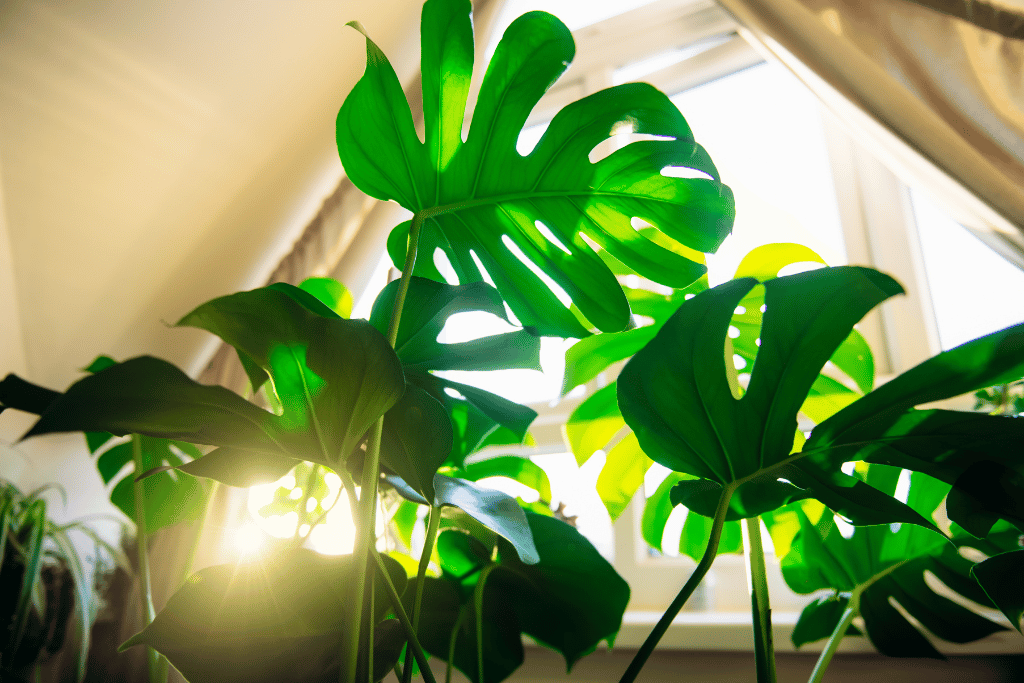
Final Notes
In summary, using the right soil mix is essential for your Monstera to flourish in all its glory. With a well-draining, lightweight soil that has the proper nutrients and pH for your plant, your Monstera will soon be the envy of all your plant collector friends! Remember to not just set and forget, but to continue to give your Monstera the care and attention it needs to truly thrive, starting with the soil.



